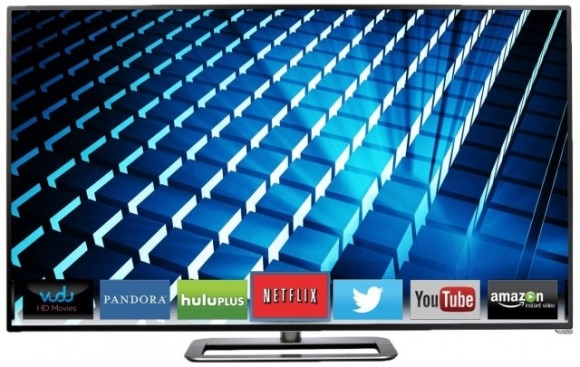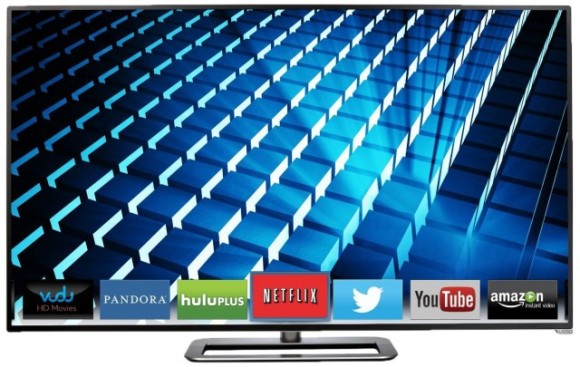As more things begin to come online, the risk of having your personal information collected without you knowing also increases and these dangers are very real. So real, in fact, that Smart TV maker Vizio was just fined USD2.2 million (around RM9.8 million) for connecting viewer information on a second-by-second basis without consent.
According to a complaint filed by the US Federal Trade Commission (FTC), the internet-connected televisions from Vizio contained automated content recognition (ACR) software in them. This software then captured second-by-second information about the video being displayed on the TV, allowing it to obtain any personal information transmitted on it. It could also collect viewing data and transmit them to servers being controlled by Vizio.
The company then sold that information to ‘unnamed third parties’ for the purpose of audience measurement, analysis and tracking. Vizio collected this information and viewing habits from 11 million devices without the owners knowledge or consent. According to ArsTechnica, the FTC lawyers had this to say:
“For all of these uses, Defendants provide highly specific, second-by-second information about television viewing. Each line of a report provides viewing information about a single television. In a securities filing, Vizio states that its data analytics program, for example, ‘provides highly specific viewing behaviour data on a massive scale with great accuracy, which can be used to generate intelligent insights for advertisers and media content providers.'”
Vizio officials came out and wrote that the ACR program never paired viewing data with “personally identifiable information” like names or contact information, nor did the FTC’s complaint said so.
The tracking reportedly started in February 2014 on both new and old TVs:
Through the ACR software, Vizio’s televisions transmit information about what a consumer is watching on a second-by-second basis. Defendants’ ACR software captures information about a selection of pixels on the screen and sends that data to Vizio servers, where it is uniquely matched to a database of publicly available television, movie, and commercial content. Defendants collect viewing data from cable or broadband service providers, set-top boxes, external streaming devices, DVD players, and over-the-air broadcasts. Defendants have stated that the ACR software captures up to 100 billion data points each day from more than 10 million VIZIO televisions. Defendants store this data indefinitely.
Defendants’ ACR software also periodically collects other information about the television, including IP address, wired and wireless MAC addresses, WiFi signal strength, nearby WiFi access points, and other items.
In addition to the fine, Vizio also had to delete all personal information collected before the 1st of March 2016 and implement a comprehensive data privacy program with reviews of the program every two years, stopping the company’s unauthorised tracking.
This isn’t the first time something like this has happened to a smart TV maker. Samsung, for example, were criticised for their TV’s alleged “always-on” features, while LG has also been caught collecting potentially sensitive data.
The FTC hopes that this will also make it very clear that smart TV makers should get people’s consent before collecting and sharing television viewing information.
For those of you who have smart TVs at home, are you a little nervous?









